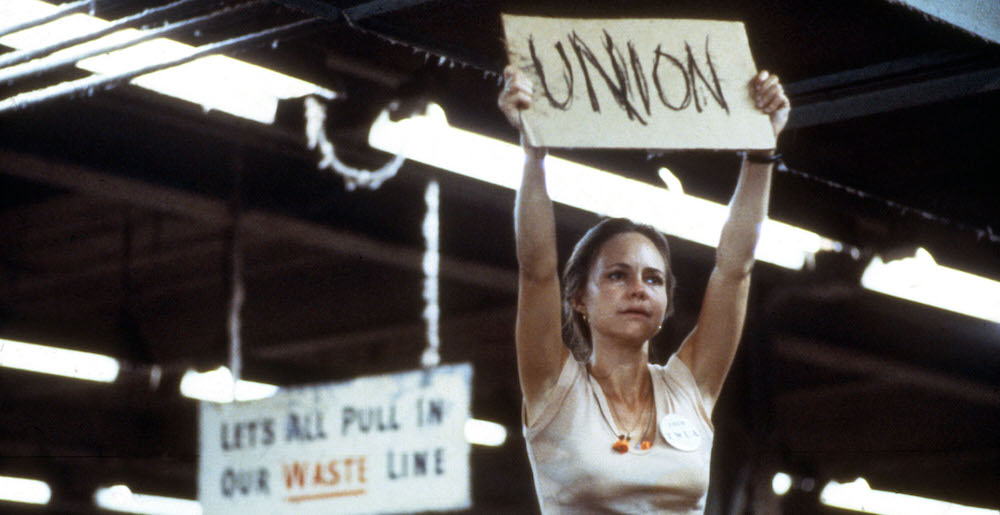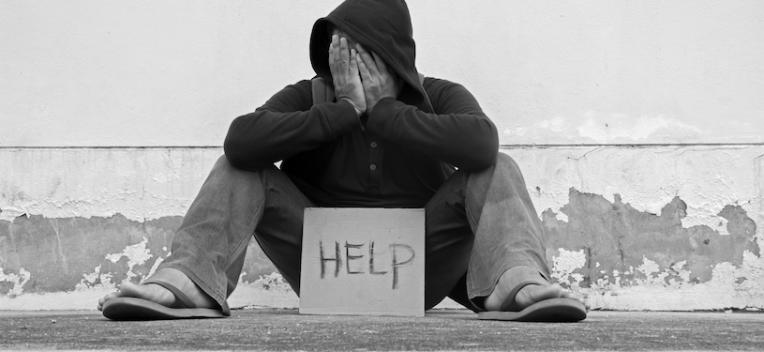In a world hopelessly committed to selfie sticks, endless cat videos, and Instagram posts memorializing the infernal ubiquity of avocado toast and overpriced mimosas, there are never enough thoughts and heartfelt sentiments for the American worker. Purchasing power has barely budged in forty years. There are endless statistics showing a pernicious inequality. This demands our swift correction. But we are very far away from the days in which the image of Sally Field boldly holding a UNION cardboard sign above her head represented a cultural symbol of inclusive American pride.
Now, thanks to the unfathomable hubris of a petulant President who cleaves to a government shutdown with all the grace and humanity of a sociopathic schoolboy holding a magnifying glass to a quivering fly, the American worker faces needless ruin and further humiliation as an estimated 800,000 federal workers have been asked to toil without a paycheck. This is, in short, a national disgrace: the kind of callous development that people used to riot in the streets over. In a prosperous nation such as ours, there is simply no excuse to settle for this indifference and to let anyone suffer.
Sure, there have been gestures – such as the seven restaurants in Phoenix offering free food to furloughed federal workers and the numerous companies in San Antonio that have gallantly stepped up to the plate. But this munificence, as noble and as considerate as it may be, doesn’t go nearly far enough in recognizing that a steady gig (rather than a rapacious gig economy) should be a basic American right and that the American worker must be granted an easy and human respect.
There are unseen stories of federal workers, many of them living paycheck to paycheck, who have been forced to take on loans to pay their bills. In some cases, workers may be lucky enough to land a zero interst loan from a credit union. But what of those who must approach predatory payday lenders? What of callous property managers in Arkansas who do not possess a shred of compassion for those facing hard times? And what of the loss of dignity to any American who is ordered to show up for a shift but who is denied the right of being promptly compensated?
The devaluation of American labor extends far beyond all this: it can be seen in the erosion of union power over the last four decades, the underreported fight for fifteen, and the ways in which “liberal” social media mobs call for perceived transgressors to lose their livelihoods. The noblesse oblige once granted to every American worker irrespective of who she was or where she worked has been replaced by a shameful notion that anyone who remains unemployed or underemployed should be able to fend for herself. And when the worker is this devalued, how then can she be inspired to fight on behalf of all Americans? 133 years after seven people died in Milwaukee to stand up for the eight hour day and in which the Haymarket Affair aroused national sympathy for the worker, we now find ourselves living in a nation in which such valor and courage is not only completely forgotten but entirely unfathomable.
On January 11, 1944, President Franklin D. Roosevelt opted to sidestep Congress and deliver his State of the Union directly to the people in the form of a Fireside Chat. In this famous speech, Roosevelt called for “a Second Bill of Rights under which a new basis of security and prosperity can be established for all regardless of station, race, or creed.”
Roosevelt insisted that the first and foremost duty of this new pledge was “the right to a useful and reumnerative job in the industries or shops or farms or mines of the Nation.”
In the decades since these more progressive times, Democrats have ignobly shirked their duties in standing up for the American worker and have lacked the smooth acumen to speak common language. Blue collar workers fled to a megalomaniac because they were ignored and abandoned by a party that refused to understand them and believed that it knew best. And this needlessly condescending and contradictory approach, perhaps best epitomized by Bill Clinton heartlessly signing the 1996 Welfare Reform Act into law, has rightfully caused the Democrats to suffer. A guarantee of full employment was once a cornerstone of the Democratic Party, but a 2013 analysis from The Daily Kos revealed that no Democratic presidential contender has stood up for this right since. During the 2016 presidential campaign, Bernie Sanders picked up on this while Hillary Clinton (you will not find a right to work guarantee on her position page) could not ardently commit to this honorable tradition, leaving the idea of guaranteed employment behind with other bedrock principles. The last prominent display of consolidated demoracy was probably Mario Cuomo’s eloquent speech at the 1984 Democratic convention, in which he declared that the heart of liberal constituency was:
the middle class, the people not rich enough to be worry-free, but not poor enough to be on welfare; the middle class — those people who work for a living because they have to, not because some psychiatrist told them it was a convenient way to fill the interval between birth and eternity. White collar and blue collar. Young professionals. Men and women in small business desperate for the capital and contracts that they need to prove their worth.
Last year, The Nation’s Ady Barkan called for progressives to adopt a good jobs guarantee, pointing out how the Service Employees International Union played hardball with Democratic candidates. The SEIU declared that it would not endorse any Democratic presidential candidate unless it made universal healthcare part of her platform. John Edwards, Barack Obama, and Hillary Clinton were all forced to adopt this position. And within two years, the Affordable Care Act was written into law.
Progressive groups can and must do this again, especially as new candidates enter the 2020 presidential race. It is one thing for doddering dinosaurs like Chuck Schumer and Nancy Pelosi to stand like stiffs and offer hollow platitudes before the American public. (Incidentally, the word “job” was never mentioned once in their rebuttal to Trump’s racist Oval Office address on January 8, 2019.) It is quite another thing to be pro-active like Alexandria Ocasio-Cortez, who led a group to track down the missing Mitch McConnell, demanding a vote to end the shutdown. Ocasio-Cortez, despite being much younger, is apparently more “old school” than the old dogs.



